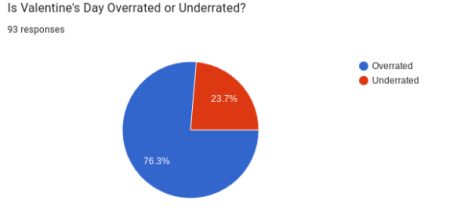Students Have Too Much Homework, Too Much Stress
Freshman Madison Parola tries to juggle student life with athletics.
November 2, 2015
Homework is something that can be necessary and helpful, but it also can be hurtful.
Most classes a student has will usually require homework at some point. Maybe it’s two pages of Spanish homework for each night or two pages of math problems. While individually that might be manageable, what becomes difficult is when that has to be balanced with other homework and one’s commitments to clubs, sports or other out-of-school activities.
A March 2014 article titled “Is too much homework bad for kids’ health?” by Sandra Levy, published on healthline.com, shows “that more than two hours of homework a night can be counterproductive. Students that complete more than two hours of homework a night experience more academic stress and a lack of balance in their lives.”
For example, let’s say a student has a paper for English, an essay for history, a test for chemistry and a test for Spanish they need to study for and finish in the night. If they take an hour for the English homework and an hour for the history essay, they have already done homework for two hours. Students may have an extra two hours of homework to complete, which may lead to negative side effects.
Some students find that homework is affecting their own moods as well as their friends.
“My friends always tell me about how stressed they are because of all the homework they have. I think the amount of homework teachers are giving is unnecessary,” said Olivia Harbison, freshman.
As a freshman A volleyball player with honors biology class, journalism, Spanish 2 and World Studies, I, too, have had difficulty balancing my homework with a sport. On any given day, practices end around 5:30 p.m. By the time I get home, eat and shower, it’s already 8 p.m. If I have a lot of homework that night, I usually don’t finish until around 11 p.m., which gives me around seven hours of sleep.
However, I don’t usually go to bed immediately after homework because I must set out items needed for the next day, and I also must make my lunch. Therefore, I usually get less than seven hours a night.
It’s even fewer hours if we have a game because games usually go later, which then means my evening routine starts later, my homework gets done later and I go to bed later.
According to the article on healthline.com, if a student sacrifices sleep time to study or do homework longer than usual, he or she will have more trouble understanding material in class the next day.
Students can’t simply just do academics and nothing else because in high school students are encouraged to be involved. Colleges look at how involved students are in high school along with students’ grades. Therefore, if a student is an athletic person, is college-bound, plays multiple sports while in many higher level classes, the homework and the athletic balance could become a disaster.
A March 2014 article titled “Stanford research shows pitfalls of homework” by Clifton B. Parker and published on the website of Stanford University states that a Stanford professor found that homework is associated with greater stress, reductions in health, less time for family and friends and extracurricular activities.
Stress is common among high school students, but with the amount of homework students could be receiving, the stress may just be unbearable.
Students could reduce their stress by taking less rigorous classes or by participating in fewer extracurricular activities, but students shouldn’t have to limit their interests and classes to be able to go to sleep at a reasonable time.
With stress there are two types, eustress and distress. According to Health Information and Resources on the website of Brock University located in Ontario, Canada, eustress is “the good stress that motivates you to continue working.” Distress, which is more common, is when the good stress becomes unbearable.
One way distress can be avoided is by the type of homework teachers give.
Harbison said that if she is having a hard time with the topic she’s learning in class, then the homework practice is useful, but a lot of her homework isn’t really related to the topics she’s having problems with, so she finds it useless.
A May 2015 article titled “Do kids today have too much homework” by Lee Lawrence, published on cs.monitor.com, states that homework can be a cause of distress.
Homework can be just another thing to worry about doing and if it’s been already a stressful day, tons of homework is not what the student is going to want to come home to.
Many teachers expect students to put their full effort into the homework and to take their time on every question or study for hours after school. Living up to this expectation can be emotionally draining for the student.
In reality, too much homework can take too much time, and if this continues, in tons of schools, students may just be stressed and sleep-deprived all the time.

